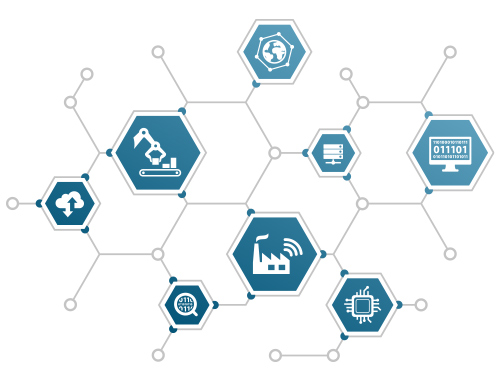
GxP Lifeline
3 Reasons You Should Adopt a Data-Centric Quality Mindset

Life sciences manufacturing is on the cusp of a seismic shift. Companies are beginning to understand that their focus needs to move from documents to data because data leads to insights and competitive advantages. The benefits of and initiatives that lead to a data-centric mindset dovetail nicely into those related to a quality mindset.
Fortunately, these are synergistic goals. Making data-based decisions improves quality. Being focused on quality in all areas of the organization means exchanging data between departments, which gives a better overview of quality across the whole company. MasterControl Insights is designed to bring that data together, give quality professionals automated analytics tools, and use artificial intelligence (AI) to improve performance. There are three main ways Insights will do that.
#1: Increase Manufacturing Operational Efficiency
If you’ve ever worked for a company that opens a corrective action/preventive action (CAPA) for every quality event, you know there are more efficient ways to do things. The problem many life sciences companies experience is their quality assurance efforts aren’t connected. This makes it difficult to know when action is warranted, what that action should be, and how extensive a problem is. While analytics and AI can definitely help an organization be more efficient, great efficiency can lie in much simpler measures.
Fagron, a global pharmaceutical compounding company, adopted document control software and saved themselves nine hours per week that used to be spent on preparing training materials. And that’s not even with the use of Insights. The reporting and analytics capabilities of Insights save quality professionals hours of work. Instead of preparing annual reports by doing data dumps into Excel and manually manipulating data, reports or visualizations can be created with just a few clicks and no manual data entry.
#2: Unlock Insights Trapped in Documents
Quality control software is useful for compliance, but there’s more to quality than compliance. Much of the information gathered by quality is recorded on documents that are either stored in filing cabinets or as Word documents on an individual’s computer. Either way, the data in those documents can’t be analyzed unless it’s manually transferred to Excel. Bringing together data from multiple documents is a daunting task.
That’s why connected systems are so important for unlocking the insights you need to strengthen your manufacturing business. Insights is designed to bring together data from all MasterControl solutions, so you get a complete picture of quality assurance in your company. According to Cognizant Chief Digital Officer Brian Williams, “Decision-making and strategic-thinking skills are best performed when workers are supported by the insights generated by AI and data analytics, and freed from performing rote and repetitive work by intelligent automation.”(1)
#3: Implement the Same Approach as Regulators
In any regulated industry, it’s hard to shake up “business as usual.” How would the U.S. Food and Drug Administration (FDA) feel about your company’s desire to go digital and embrace analytics and AI in manufacturing and quality? Odds are they’d be enthusiastic about it. Primarily because they’re using those tools themselves. Last year the FDA piloted a program to use AI for import screening. In 2019, the agency released a Technology Modernization Action Plan (TMAP), which laid the groundwork for such efforts.
Most recently, the new Office of Digital Transformation (ODT) has a vision of “Collaborating as partners to enable data and technology leadership to improve health for all Americans.” ODT’s mission is listed as “provide high quality, secure, and efficient IT and data solutions that enable the FDA to promote and protect the public health.” (2) Surely part of those efforts will involve supporting the use of advanced analytics and AI in manufacturing and quality in the life sciences.
Final Thoughts
With companies hesitating to implement new technology, there is potential to gain a tremendous lead over your competition. So few are poised to adopt a data-centric approach by using digitization, analytics, and AI that those who do will reap benefits from the data in their now unstructured documents. Adopting these technologies will position a company for streamlined regulatory compliance while opening doors to unparalleled insights that drive revenue.
Sources:
- “The Work Ahead in Life Sciences: Cures at the Speed of Digital,” Brian Williams, Cognizant, Feb. 24, 2021.
- “Office of Digital Transformation,” U.S. Food and Drug Administration, Sept. 15, 2021.

